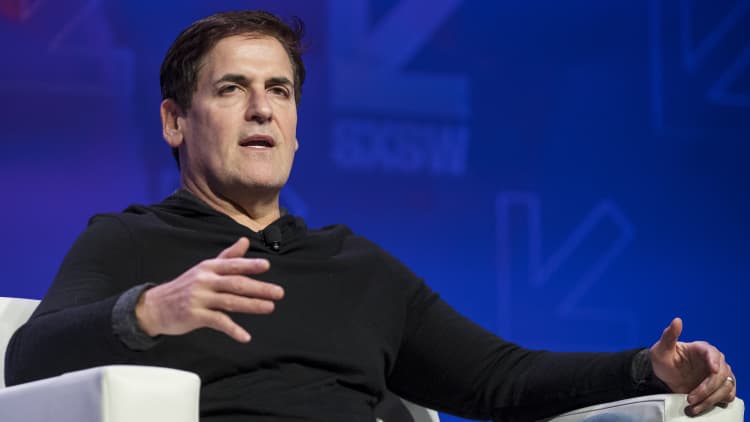If you don't know how to code, fret not, you can still have a successful career in a tech-powered job.
So says the CEO of Google, Sundar Pichai.
While education and workplace training for an automated future has focused largely on coding, there will be many jobs that depend on softer tech skills, Pichai says in an essay published Thursday on NBCNews.com.
"When you think of how to help our workforce thrive and find opportunities in the digital world, the first word that often comes to mind is 'code.' Nearly every digital-skills program over the past decade has focused on computer science, with a lot of emphasis on young students," says Pichai.
"But the focus on code has left a potentially bigger opportunity largely unexplored."
Softer-skilled, mid-level jobs are being rapidly digitized and automated and training needs to stay nimble and be a constant through your career, Pichai says.
"In the past, people were educated, and learned job skills, and that was enough for a lifetime. Now, with technology changing rapidly and new job areas emerging and transforming constantly, that's no longer the case," says Pichai.
"We need to focus on making lightweight, continuous education widely available. This is just as crucial to making sure that everyone can find opportunities in the future workplace."
Office admins, for example, today need a robust cadre of digital skills. They schedule and take care of budgeting and accounting online. There need to be training programs for workers to learn these skills, says Pichai. And they don't need to be formal degree programs.
"The digital skills necessary to do these jobs are far easier to learn than code, and should be easier to deliver at scale," says Pichai, who points to a November 2017 Brookings Institute report showing jobs with "medium-digital" skills in America have grown from 40 percent of jobs in 2002 to 48 percent of jobs in 2016.
Another job tech-powered job category that doesn't require the ability to code but that does require some amount of technical education is IT support, says Pichai.
"IT support is a clear opportunity, here. Just as anyone has a clear path to becoming an auto-mechanic, we need a similar path to the 150,000 open positions for IT support, in which people maintain the machines and software that underpin technology services. Yet no training today efficiently connects people to that opportunity," says Pichai.
All this is not to undermine the importance of coding, but to suggest there is another, parallel track for tech skills training critical to getting the workforce ready for the future.
"Moving beyond code and intensive degrees to these constant, lightweight and ubiquitous forms of education will take resources and experimentation," writes Pichai. "We should make sure that the next generation of jobs are good jobs, in every sense. Rather than thinking of education as the opening act, we need to make sure it's a constant, natural and simple act across life — with lightweight, flexible courses, skills and programs available to everyone."
Read Pichai's full essay here.
See also:
Mark Cuban: The world's first trillionaire will be an artificial intelligence entrepreneur
A high schooler interviewed Apple CEO Tim Cook — and he told her his secret to success
Apple CEO Tim Cook: 'Don't work for money ... you will never be happy'

Like this story? Like CNBC Make It on Facebook


